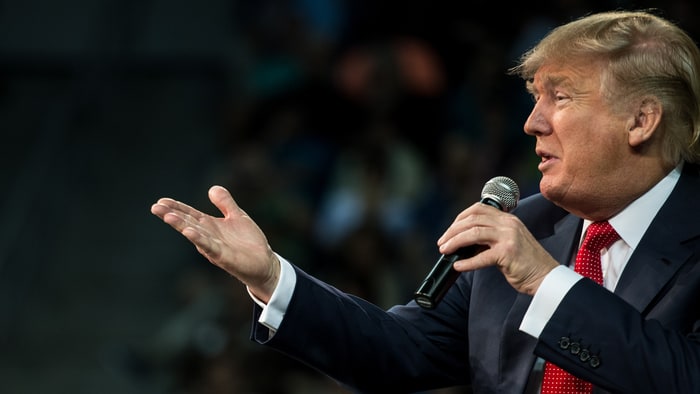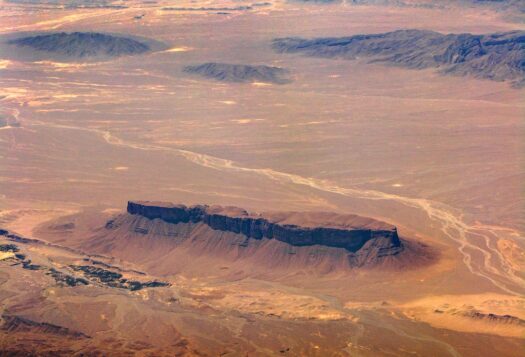
Returning to Pakistan after a month-long SAV visiting fellowship at the Stimson Center in Washington, D.C., I discovered that the first question many Pakistanis had when they heard I visited the United States was: “Will Donald Trump win the election?” This curiosity is due to the widely held belief that whoever holds office will invariably have an impact on the lives of many Pakistanis, as well as the U.S.-Pakistan relationship, which has been fraught with suspicion, often swaying like a reckless rickshaw.
Not surprisingly, an overwhelming majority of Pakistanis hold a negative view of Trump, and consider him to be the worst possible candidate for president. His presence at the center of the U.S. presidential race has set off alarm bells among the general population. Pakistanis wish to see the relationship with the United States progress, in light of promising initiatives such as the proposed US- Pakistan Strategic Dialogue set for February 29, encompassing areas such as defense and counter terrorism. However, many fear what would happen if Trump does come to power. His success may prompt Pakistanis to look elsewhere for scholarships or immigration, and many would advocate forging better ties with countries offering more promising profiles, such as China. Trump also serves as a reminder that anti-American sentiment can easily be fomented in Pakistan, where his policies are considered as detrimental for regional as well as world peace. The truth is that Chinese president Xi Jinping would look more attractive, and anti-American sentiment would cause reinforcement of stereotypical thinking such as that United States aims to violate Pakistan’s sovereignty and take its nuclear weapons.
What has perturbed the general public the most, however, is Trump’s Islamophobic and racist rhetoric, which has made him the subject of both criticism and fascination. His views reinforce the belief held among radicalized sections of society that the United States, despite its multi-ethnic and multicultural make-up, is anti-Islam. This is despite the fact that Trump’s flirting with bigoted, xenophobic hate speech has not gone down too well with the American public. However, an ordinary Pakistani, who is often disconnected from ground realities in the United States, may not know or care.
Realists in Pakistan would argue that Trump’s campaign is alive and well due to factors such as his financial clout, and he may eventually fizzle out when the run for the center takes place. But his campaign suggests that he is anything but self-funded. In any case, these realists constitute a small segment of Pakistan’s largely religious, yet complex society. Trump’s views have dangerous connotations for the radicalized segments of the country, because they strengthen the narrative that the United States vehemently attacks Islam to promote its own agenda. Trump has become a personification of that image. Commentators and members of the public will continue to view him as harmful to the security and safety of Pakistanis as well as Americans, if he does become the Republican nominee.
The worst part about Trump, however, is that his rhetoric could possibly embolden Islamic State sympathizers within Pakistan. Graffiti in certain parts of the country suggests that ISIS could turn out to be a potent force in the near future, despite denials by the Foreign Office regarding the group’s presence inside the country. It doesn’t take a radicalized mindset to understand how the ‘Trump package’ could encourage ISIS supporters. Even the most pro-American segments of Pakistan revile Trump, and regard him as a symbol of White imperialism, racism, and Islamophobia. Conspiracy theorists who have a stake in fomenting anti-American sentiment would claim that a Zionist conspiracy from across the Atlantic is bound to take place, and the United States would become a power that threatens the Islamic ideology of Pakistan, depriving it of its most prized possession: its nuclear weapons.
Many across the world, not just Pakistanis, believe that Donald Trump is a grave threat to world peace. Under his watch, there is a possibility of more episodes of invasions into other sovereign states, boots on the ground in Afghanistan (which could have a spillover effect on Pakistan), as well as a spike in drone strikes, which may result in more conflict and terrorist attacks. He could mirror the George W. Bush legacy or even worse. American voters must bear in mind that supporting Trump will spur the Pakistani far right into action, having a dangerous spillover effect— in the form of a rise in ISIS- sponsored militancy in Afghanistan, more turmoil in restive states such as Syria and the Middle East, as well as justification for the very same bigoted minds who need to be educated about peace and tolerance.
On the other hand, if Trump is trumped by sound judgment prevailing among American voters, the world will breathe a huge sigh of relief. This holds especially true for a country like Pakistan, where both religion and conspiracy theories are taken very seriously.
***


